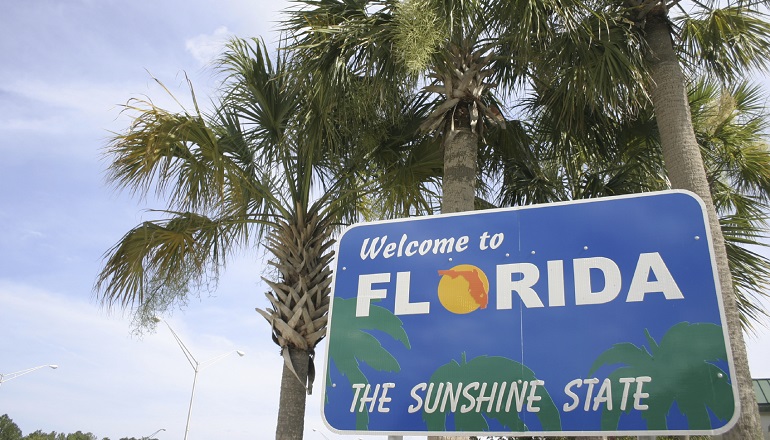Each state maintains its own adoption policies, so the process can vary considerably for families in different states. As a Florida resident, you’ll want to work with an adoption agency or adoption attorney who is very familiar with Florida adoption laws and policies. Below, you’ll find adoption agencies and adoption lawyers offering services to Florida families. Scroll past the listings to learn all about the legal guidelines for families adopting in Florida whether you’re adopting a newborn through domestic adoption, an infant or older child from U.S. foster care adoption, or a child through international adoption.
FLORIDA ADOPTION LAWS & STATUTES
Who Can Adopt in Florida?
A single adult or married couple jointly. A married individual without his or her spouse if the spouse is the parent of the adoptee or the court excuses the spouse for the best interest of the child.
Can LGBT families adopt? LGBT singles are permitted to adopt individually; however, same-sex couples may not jointly petition to adopt.
Domestic Adoption Laws in Florida
Can adoptive parents advertise for birth parents? No.
Can out-of-state residents finalize an adoption? Yes.
Can adopting parents use an adoption facilitator or another paid intermediary? Only an attorney or licensed adoption agency acting as adoption entities can charge or accept a fee for involvement with placing a child for adoption.
What birth parent expenses may be paid, and in what time period? Reasonable living expenses (including rent, utilities, phone, food, transportation, clothes, insurance), medical and attorney fees, and adoption-related expenses deemed necessary, up to 6 weeks postpartum.
Is there a putative father registry? Yes.
When can consent to adoption be granted? Birth mother: 48 hours after birth, or after release from the hospital, whichever is earlier. Birth father: option to sign a binding affidavit of non-paternity or any time after birth
When does consent become irrevocable? If consent is revoked, is return to birth parent automatic? Newborn: Upon signing, unless fraud or duress proven; 6 mos. or older: 3 days after signing or when child is placed in adoptive home, whichever is later, unless fraud or duress proven. Affidavit of non-paternity can be revoked only if fraud or duress shown.
Are post-adoption contact agreements legally enforceable? No.
International Adoption Laws in Florida
Is a foreign adoption decree automatically recognized by the state? Yes, as long as the adoption decree is issued under due process of law and is then domesticated by a Florida Court.
Can parents readopt in this state? Is it mandatory? Not addressed in state statutes.
When will a U.S. birth certificate be issued? The Bureau of Vital Statistics will issue a birth certificate as long as the adoption is domesticated by a Florida Court and only following receipt of a copy of the adoption decree, proof of the date and place of birth of the child, and an order from the court, with a request from the adoptive parents, or the adopted person if s/he is 18 years or older.
Adoption From Foster Care in Florida
Are adoption subsidies available? When do they start and how long do they last? Yes, adoption subsidies are available for a special needs child as defined by one of the following: 8 years or older, African American or of multiracial heritage, member of a sibling group of 2 or more children being placed together, has a mental, physical, or emotional condition, or strong emotional ties with his/her foster parent/s. Starts upon adoption placement.
Where can I learn more about the process of adopting a child from foster care in Florida? http://adoptflorida.org
Access to Adoption Records in Florida
Who may access non-identifying information?
- The adoptee age 18 or older.
- The birth parents.
- The adoptive parents.
- Birth siblings.
- Maternal and paternal birth grandparents.
Who may access identifying information? Identifying information about a birth parent, an adoptive parent, or an adoptee may not be disclosed unless the respective party has authorized in writing the release of such information. If the adoptee is younger than age 18. written consent must be obtained from an adoptive parent.
Can adoptees obtain their original birth certificates? Yes, but only by order of the court.
Florida Licensing Office Contact
Betsie Cieslak
[email protected]
Florida Adoption Unit
Program Manager: Courtney Smith
1317 Winewood BoulevardBuilding 1, Room 301-M
Tallahassee, Florida 32399-0700
Phone: (850) 717-4660
Fax: (850) 487-0688 [email protected] http://www.fosteringflorida.com/



